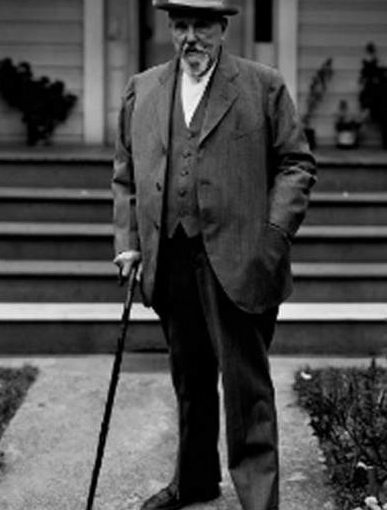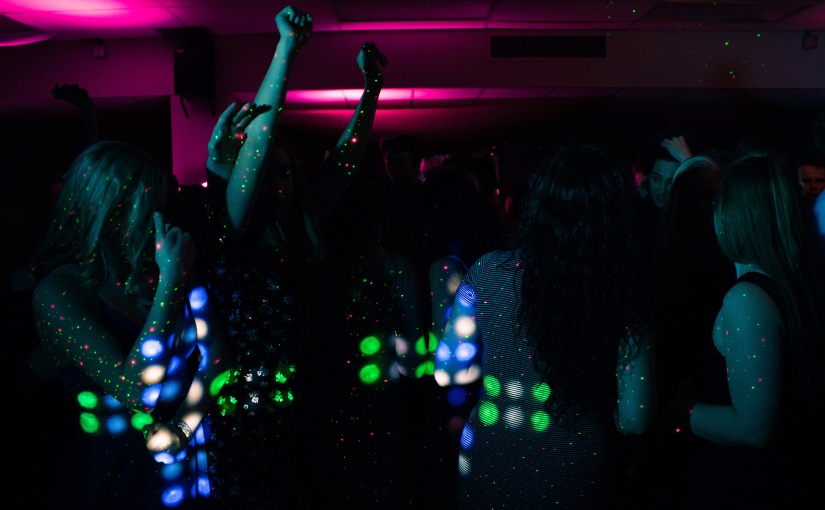In celebration of 10 years of blogging, I’m reposting old entries. This is the second post to ever appear on this blog!
————–
Genealogists work in an economy of questions and answers. It seems like for every answer I find, 5 more questions pop up to take its place. The obituary of Mary Benn that I posted in my previous entry is a good example. Before I sit down to research, I try to focus on finding the answer to just one question I have about a family member or a document. This technique has worked well for me because I’m distractible. The question I was trying to answer when I found Mary’s tribute was, How did my relative, Eliza Kelley, meet and marry Hank Ruffe?
A little back history is required here, I think. According to census records taken in Council Bluffs, IA, our Miss Eliza lived in the same house with her parents until she was about 50. I lose her after the 1905 Iowa special census and pick her up again on her wedding day in Portland, Oregon, in 1912. For a while after I found it, I wasn’t sure their marriage record was the right Miss Eliza. I mean there she is taking care of her elderly parents and then suddenly she pops up as a wife in Oregon? It seemed unlikely. But, her brother’s obituary confirmed that she was indeed Mrs. Henry Ruffe of Oregon. Finding her brother’s obituary supplied an answer, but it also generated more questions for me. The following is what I call a list of rabbits:
1. Where was Eliza in the 1910 census? (US Censuses are taken every ten years starting consistently in 1790.)
2. Did she disappear from the census because she was traveling to Oregon?
3. What made 2 people well into their golden years (we’re talking 1912 remember) decide to retire their single lives?
4. How exactly does someone move from Iowa to Oregon in 1910?
5. How did she meet this man from Oregon after seemingly leading a sheltered life?
Let’s just chase #5 down the rabbit hole.
Obviously Mary Benn’s obituary alone doesn’t answer my question. It’s definitely interesting, though. She ran a cigar factory, she grew alfalfa, she hunted bears, she collected rocks for posterity. So, when the obituary mentions her father’s eccentricities, I had to look him up. How could Mary’s father possibly top his daughter’s ‘colorful’ life?
Turns out Mary Benn’s father founded Aberdeen, Washington. He sailed through the Panama Canal, and up to Olympia, WA. He then set off south, found a spot where 2 rivers meet, and decided it was going to be a town. And since Samuel Benn was a founding father, his life and family are very well documented.
 Samuel Benn, builder of cities
Samuel Benn, builder of citiesI have never owned land or a house in my lifetime. The idea of traveling somewhere, sticking a flag in the ground, and declaring it to be Oregon’s next BIG THING is just amazing to me. If I were to go to some remote part of the country and declare it for myself, I would immediately be deemed as eccentric. Thankfully, when Mr. Benn was doing it, it was a highly respectable prospect.
This article mentions that Mary Benn’s mother was born and raised in Polk County, Iowa. That’s a couple counties over from where our Miss Eliza was raised. As Mary Benn’s right hand (so the obituary paints him), it would follow that Hank may have been introduced to Eliza as a freshly-arrived acquaintance of Mary Benn’s Iowan family. So, BAM! Question answered.
Well, a little bit. I’ve had to come to terms with the fact that I’m never going to be able to wrap up my family tree in a neat little package. It’s messy work that never ends; it’s a kid eternally stuck in the “Why” phase.
The death of a brother; a cigar rolling ranch hand; a Native American artifact collection; the father of Aberdeen, WA. Answers to the questions we ask our family trees can take us on a journey to unexpected places. I never know where I’m going to end up.
All of this is to say that the questions and the messiness are worth it for the journey. In fact, they’re probably more valuable than the hard copy of my family tree. To put it a different way: the paper work is the body, the journey is the soul.
It’s important to mention also that Mary’s obituary may have solved another mystery. Its explanation of Michigan lumbermen in Oregon might explain some relative’s migrations on my mom’s side of the family, but the details of that clue aren’t important here.
This story continues. I’m awaiting the arrival of Eliza Kelley Ruffe’s obituary from the University of Oregon library. We’ll see where that rabbit leads us together. I can’t wait!
The subject of this post is also related to the song “Come As You Are.” Google Aberdeen, Washington, and look around a little; you’ll see how pretty quickly.
+++++++++++++++++++++
If you were to be the founder of a town, like Samuel Benn, where would it be in the world? Why there? How would you run it?















